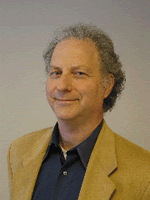As I See It, March 2010
 By Nelson Morgan, Director
By Nelson Morgan, Director
How far that little candle throws his beams! So shines a good deed in a naughty world.
—William Shakespeare (via Portia, in the Merchant of Venice)
In recent weeks, we have been saddened to read (and see) the devastation in Haiti following their earthquake. Natural disasters occur frequently, given the wide range of dangers in our world; but they are sometimes exacerbated by human action or inaction. This brings to mind the devastation in our own country that followed Hurricane Katrina. Many have cited the insufficient designs and their implementations for flood control as being the real cause of the major loss of life and property in that disaster. And in Haiti's tragedy as in many other disasters, human choices (domestic or international) could be seen as the primary cause for much of the suffering.
But many other disasters are slower in occurring. Insufficient public health resources are the cause for far more deaths worldwide than terrorism or war. Even in our own highly developed and wealthy country, it has been estimated that 45,000 people die annually because of the lack of health insurance. Even more subtle is the effect of poor early childhood education, including of preschool age children; this leads to, among other things, poor language skills, which in turn leads to a larger poverty–stricken population; and consequently, many reductions in the overall quality of life in our country.
I hope that the reader excuses these departures into topics that I certainly have no credible background in. There is, however, a connection to science and technology, and in particular to what is now happening at ICSI. We certainly are a technical establishment, with goals that are primarily focused on progress in computer science (and on international collaboration — see the statement on our home page). As I've noted before in one of these columns (March, 2005), while technological and scientific progress is certainly not inherently evil (as would be suggested by the "Frankenstein complex"), it also is not destined to only promote good things — fire is used for both cooking and arson. Those of us who work in technical areas have to accept that the basic science and technology we develop will be used in ways that we will not approve of. Nonetheless, we continue, generally holding the belief that the problems of the future (and the present!) cannot be handled without continuing scientific progress.
And yet, for many of us, this is not enough. We want to help with "good deeds." We give to charitable organizations, volunteer time and money for causes we believe in, and sometimes even lead in public action. These are personal choices ICSI staff have made outside of the Institute per se; but within ICSI's official program, we also work toward what we see as the public good in specific, targeted ways. In our Algorithms Group, for instance, we have worked for years on finding genomic associations with disease. In our relatively new Vision Group, facial identification algorithms are being developed in order to reunite lost children with their families (a task that sometimes took as long as six months after Katrina). The Networking Group has long had a focus on developing the underlying science necessary to defeat attacks on the cyber structure of our country, which increasingly is at the core of our overall infrastructure, for instance the energy supply system. The group is also concerned with attacks by cybercriminals that can be particularly devastating for the financial security of vulnerable parts of society. Speech researchers have been looking at the nature of calls to emergency services, in hopes of increasing their efficiency, and have also begun studying the problems of improving the language skills of low socioeconomic status preschool children with the help of some current and upcoming technologies. And our AI Group researchers have been working on improving the access to public health information in poor populations; this is the topic of the lead article in this Gazette and is an increasing focus at the Institute.
Finally, for many years ICSI has supported the Berkeley Foundation for Opportunities in Information Technology (BFOIT). BFOIT is the primary Berkeley effort to support the advancement of underrepresented minorities and women into computer science and related fields. This is a very local and very direct way for Berkeley scientists and engineers to help in a wonderful cause. I'd like to give credit here to ICSI's Founding Director, Jerome Feldman, for involving ICSI in this worthy enterprise. Please see www.bfoit.org to learn more about BFOIT.
I'd like to close with one last pointer: each year, our annual activities report for the previous year is published; it can be found in pdf form through the pull–down menu on our Publications page. If you are interested in looking at the range of ICSI research for a year, please take a look. It usually comes out within a month after the publication of the March Gazette.
